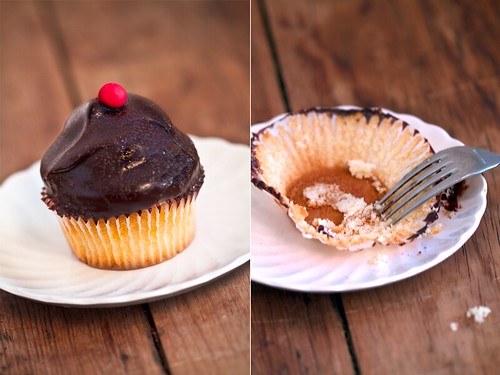How does taste affect the types of food you will eat? Or the amount you eat? How does this affect weight loss? Nature recently published an interesting series on Taste that looks at some of these questions.
Insensitive Issue, an article on obesity, is particularly interesting. It discusses the role of taste preferences and fat consumption in obesity. Obesity is strongly associated with the consumption of fat. Recent research suggests that we may have taste receptors for fat (in addition to sweet, sour, salty, umami, and bitter). So, could obese people actually taste food differently? The article explains "that a taste described as 'extremely sweet' by a lean person might not seem so sweet to someone overweight, because their food experiences are different." Obese people tend to prefer sweet, fatty foods.
Now the question is: is it cause or effect? Does eating fatty foods decrease our sensitivity to fatty tastes and cause us to eat more (a vicious cycle)? Or does a reduced ability to taste fat cause us to eat more? The truth is probably in between- a combination of environmental and genetic factors lead to overeating fatty foods, and becoming obese. This is both good and bad news. The bad news is that some people may be genetically predisposed to obesity based on their genetics. But, the good news is that some of it is within your control. This article suggests that by reducing your consumption of fatty foods your sensitivity to their taste will increase you will be satisfied with less, making it easier to lose weight. In other words the longer you continue to make good healthy food choices the easier it will get.
A study last year suggest the same is true with sweets. Increasing consumption of sweet beverages increases your preference for sweets. This is further evidence that the longer you eat a healthy diet, the easier it will be to continue. This is strong support for losing weight with healthy lifestyle changes, and not fad diets. Many diets on the market don't limit sweet or fatty tastes. While you may lose weight on these diets, your desire for high calorie fatty sweets would remain. This would make it very easy to regain the weight.
I'm not very far along in my weight loss journey. But, already I notice that fruits taste sweeter, and I can satisfy my sweet cravings with a piece of fruit instead of a package of cookies. Similarly, a teaspoon of butter in a pot of pasta and veggies tastes decadent, whereas before my food would have been drowning in it. I'm on the right track, but it will require constant vigilance. The research shows that healthy eating will reduce the preference for sweet and fatty tastes, but the converse is also true. If I slip up and start to indulge in more treats the sweet fatty preference will come right back.



Interesting post. I think that the research should be on what type of fat or maybe further define "fatty foods." Added sugar is easy to understand. The Inuit eskimo diet is unusually low in carbohydrates and high in fat and animal protein, and they are a fit people.
ReplyDelete